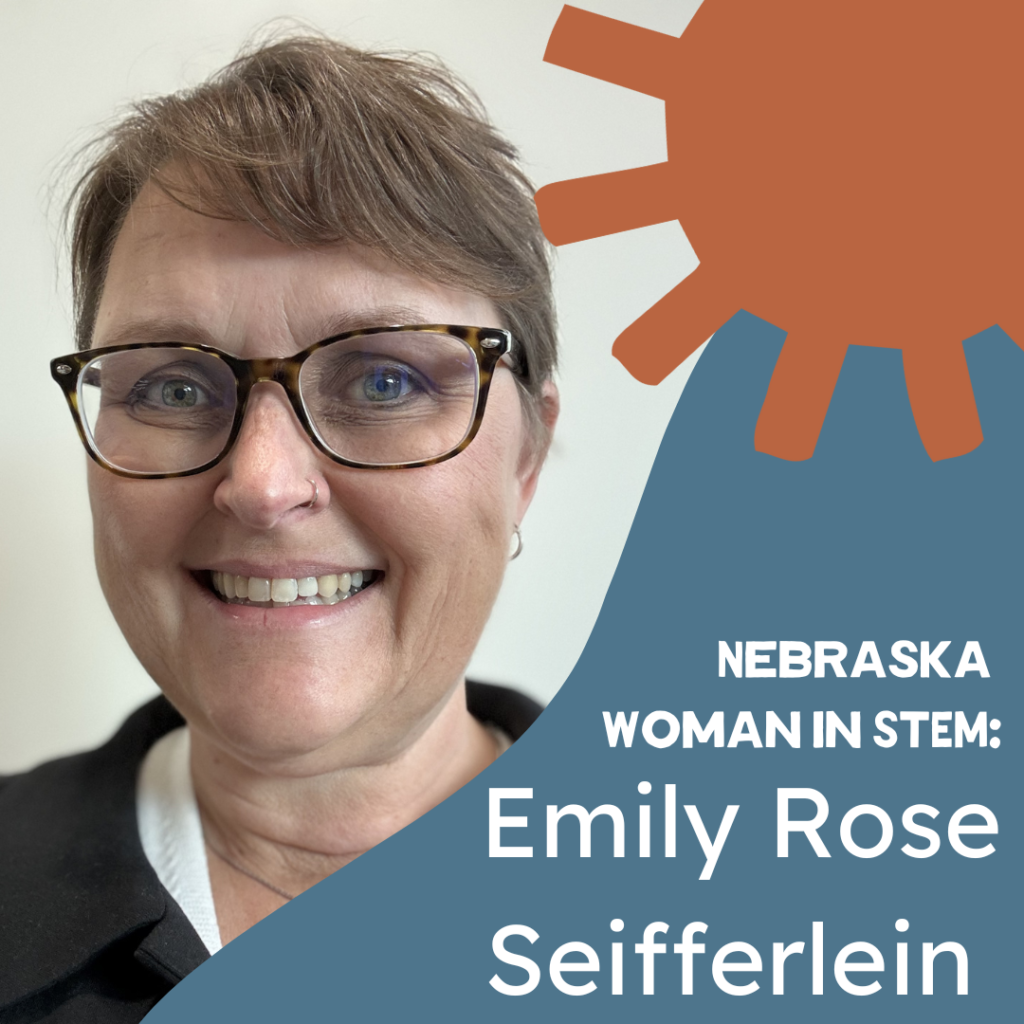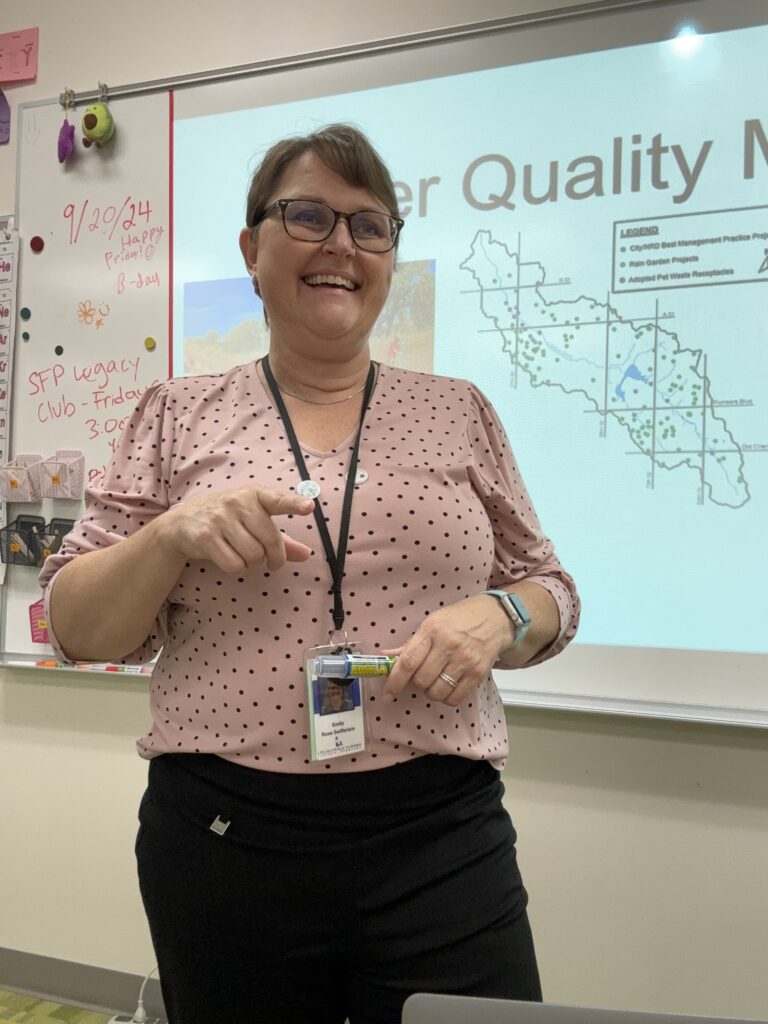Nebraska Women in STEM talked to Emily Rose Seifferlein about her road from geological research to teaching high school science.

“I love my job,” says Emily Rose Seifferlein, a science teacher in the Science Focus Program at Lincoln Public Schools.
Growing up in a very small town in Michigan, Emily’s dad was a teacher and later a principal, and her mother worked in special education. However, when Emily entered college, she didn’t plan to become an educator, like her parents. As she considered her options at Central Michigan University, she wanted to go into science and gravitated to geology.
“The cool thing about studying geology is I got to go everywhere. I got to see the country and learn in the field,” said Emily of the geology trips she attended while in college. Many times, Emily was the only woman on these trips, especially in undergrad.
While still in college, she credits her parents for her perseverance and laying the groundwork for her to be whoever she wanted to be. Her mom was especially a role model as an Occupational Therapist with an advanced degree at a time when most women were in traditional jobs. Both her parents were also the first in their families to go to college.
In her junior and senior year, she began feeling a pull into education. She found a master’s program at Wright State University that would allow her to continue to do geologic research while dipping her toes into educational experiences.
Through her master’s program, she continued to love working in the field. Her research took her to the Bahamas, which led to her thesis exploring ancient warm water near-shore environments which helps to inform our understanding of how Earth responds to sea level changes.
“It was a lovely experience. You don’t spend your time at the resort. You’re at the old research station with little to no air conditioning and maybe some screens to protect you from the mosquitos, but it was a huge experience for me.”
While enjoying the work and the traveling, somewhere in the back of her mind she still heard a calling to teach. As part of her masters program, she was hired to teach the labs that were designed for pre-service and practicing science teachers. She gave them practical lab experiences in geologic concepts and mapping.
Then, the 9/11 attacks happened while she was pursuing her PhD at the University of Georgia. She was planning on conducting research on an ancient coral reef in Cuba, but the project was shut down after the terrorist attacks. Emily began looking at how she wanted to spend the rest of her career.
She asked herself “do I want to spend my time looking at this one coral reef or place, or do I want to have a broader impact?”
This was the same period of her life that she and her husband decided that they would move to wherever one of them landed a job. Her husband got a job with NTV, now Nebraska Public Media, and they moved to the Lincoln. As they moved, Emily ended her pursuit of her PhD.
Through her job search in Lincoln, she realized her geological studies weren’t the type of agriculture-related geology needed in Nebraska. She spent a year working for the USDA Soil Chemistry Lab before finally heeding the call to teach and entered the University of Nebraska-Lincoln’s post-bachelors teacher certification program. Two years later, she started as a teacher at Lincoln Public Schools (LPS) as a ninth grade Geoscience and Physical Science teacher at Lincoln North Star High School.
In the fall of 2013, she started at the LPS Science Focus Program (SFP) where high school students from around the district come to their program located at the Lincoln Children’s Zoo. It is a competitive program students apply to join. Students not only take their core course work but they are able to experience a large variety of science electives not typically taught at comprehensive high schools. In addition, students at SFP, participate in research projects of their choice each year.
“It is my core believe that anyone can do this. Anyone can use science as a way of doing. It is the level at which you want to pursue it. I think one awesome thing about new science standards is that it is really trying to see science as a way of doing and not just a body of knowledge you memorize.”

She loves working with juniors and seniors to develop their research projects and prepare to present them. She also loves working with freshman and teaching them the basics like designing a graph from data and making sense of it.
She feels rewarded seeing students wrap their heads around graphing and discovery as they analyze information and come to conclusions. She was thrilled when recently a freshman girl got excited studying climate data and exclaimed, “Gosh, I feel like a scientist right now!”
She has no regrets about not finishing her PhD. “I am so glad that I switched gears.”
Some of her students will go on to become PhD scientists and some will take other career paths, but she knows they all leave the program with the skills to be successful.
“They know how to critically look at the world. They know how to look for the patterns. And they know how to analyze and be critical thinkers.”